Middle East
Are Yemen’s non-Houthi groups seeking US support to attack the Houthis? | Houthis
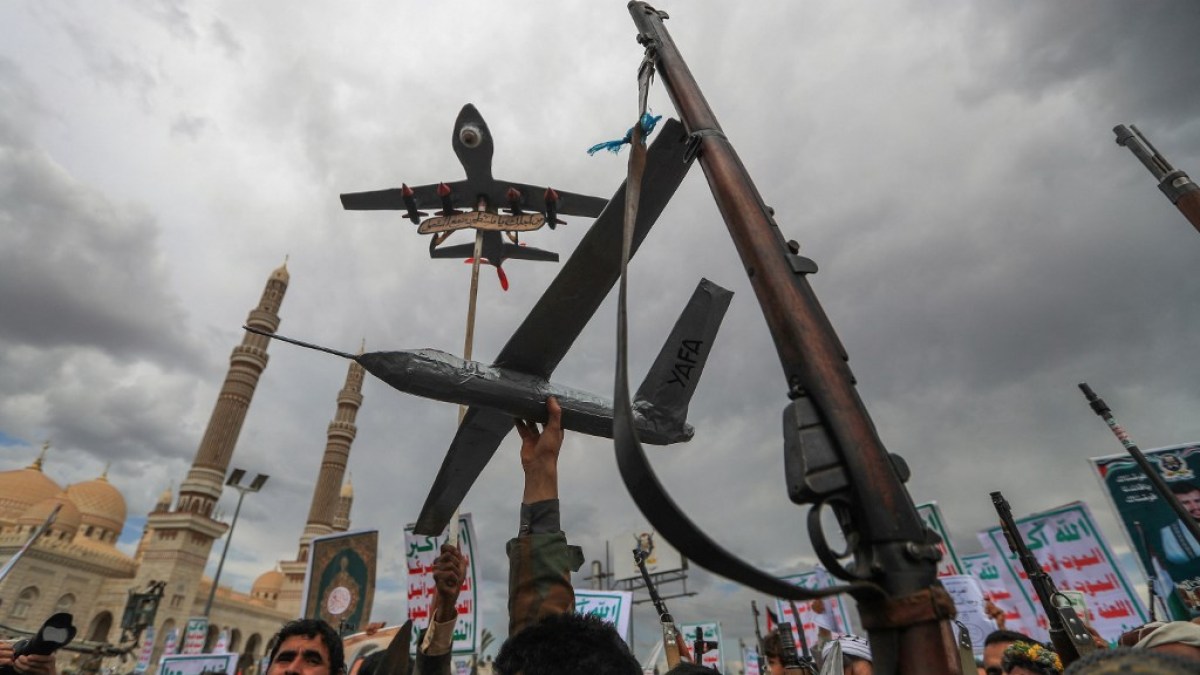
Anti-Houthi factions in Yemen could be vying for US support to attack the movement’s territory, analysts and experts told Al Jazeera, following intensified air strikes on Houthi targets by the United States.
The war in Yemen has largely been frozen for the last three years. Still, groups aligned with the Yemeni government have started signalling that they could launch operations against areas controlled by the pro-Iranian Houthis, including the crucial port of Hodeidah.
A similar campaign on Hodeidah, a critical entry point for food and goods on the Red Sea coast, seemed imminent in 2018, only to be aborted after intervention from the United Nations and the international community, who feared a humanitarian disaster in Yemen.
But experts and analysts expressed doubt that an attack by anti-Houthi groups on their domestic rival would be successful, despite some likening it to the offensive that unseated another Iran ally, former Syrian President Bashar al-Assad, in late 2024.

“Pro-ROYG [Republic of Yemen Government] voices have been asserting that ground operations against the Houthis – in Hodeidah and potentially elsewhere – are imminent,” Hannah Porter, an independent Yemen analyst, told Al Jazeera.
“My impression so far is that these comments are just meant to garner external support from the US or Saudi [Arabia] for a takeover of Hodeidah.”
Vying for US support
The Houthis, or Ansar Allah as they are officially known, marched into and took over the Yemeni capital Sanaa in 2014. Soon after, a Saudi Arabian-led coalition intervened on behalf of Yemen’s internationally recognised government to fight the Houthis.
Anti-Houthi forces achieved some success in the early years of the war, but the failed Hodeidah campaign seemed to slow their momentum, and the Houthis have largely been on top militarily since then.
Saudi Arabia announced in March 2022 that it would stop hostilities in Yemen, and a UN-brokered truce stopped much of the fighting the following month.
By then, the Houthis still controlled Sanaa and much of northwest Yemen, while various anti-Houthi groups held the key port city of Aden and much of southern and eastern Yemen.
The Yemeni government has undergone major changes in the past few years, with President Abd-Rabbu Mansour Hadi suddenly stepping down in 2022 and handing over power to an eight-member Presidential Leadership Council (PLC), which has, so far, proven ineffective.
PLC Prime Minister Ahmed Awad Bin Mubarak resigned on Sunday, claiming to have been blocked from fulfilling his duties, as reports circulated of conflicts between him and President Rashad al-Alimi and accusations of mission creep.
The PLC includes members who have previously fought against the Yemeni government. They include Aydarous al-Zubaidi, the head of the separatist Southern Transitional Council (STC), and Tareq Saleh, nephew of former President Ali Abdullah Saleh, a one-time ally of the Houthis.
But Houthi attacks on what they claim are Israeli-linked ships in the Red Sea, as well as attacks on Israel itself, have led to a bombing campaign against Yemen, and some anti-Houthi forces now see an opening.
“We’ve been seeing various anti-Houthi factions lobbying for US support since the start of the Gaza crisis,” Nick Brumfield, a Yemen expert, told Al Jazeera.
“Both the Yemeni government and the Southern Transitional Council have competitively sought to present themselves as the solution to the US’s need for a partner on the ground against the Houthis in Yemen.”

Plan versus reality
The Yemeni government has long emphasised that its ultimate goal is the defeat of the Houthis and an end to the group’s “coup” against the Yemeni state.
In early April, President al-Alimi spoke of the importance of national unity “to topple the coup”, adding that the “decisive hour” of the “battle for liberation” was drawing near.
Al-Alimi has not given any indication of when that battle against the Houthis would be, but forces under the umbrella of the Yemeni government may see the intensification of US air strikes under President Donald Trump’s administration.
The US claims the strikes targeted Houthi leaders and have significantly degraded Houthi capabilities. Houthi authorities say that at least 123 Yemenis have been killed in the strikes since they intensified in mid-March, many of them civilians.
Reporting from The Wall Street Journal (WSJ) and Bloomberg has claimed that discussions for an anti-Houthi ground operation, backed by the US, are under way.
The WSJ specifically mentioned that the United Arab Emirates had raised the plan with the US, but the UAE has denied any involvement, with Assistant Minister for Political Affairs Lana Nusseibeh calling them “wild unsubstantiated stories” on April 17.
The UAE officially withdrew its military forces from Yemen in 2019.

Tareq Saleh has been mentioned in news reports as a likely figure leading any anti-Houthi campaign on the Red Sea coast.
But, experts say, there has thus far been no noticeable mobilisation on the ground by anti-Houthi Yemeni armed groups.
“The PLC has been speaking about liberating Sanaa and such,” Raiman Al-Hamdani, a Yemen researcher with ARK, an international development company, told Al Jazeera.
“As far as I know, there has been little mobilisation towards this end. Whether they can is a very different story, especially with Saudi Arabia and the UAE no longer wanting to engage in war with the Houthis.”
After years of fighting, the Saudis and Houthis entered into ceasefire discussions in 2022, leaving anti-Houthi groups – including the Yemeni government – uncertain over their future and the Houthis further entrenched in power.
Al Jazeera reached out to the Yemeni government for comment on this story but received no response before publication.
Comfortable in the status quo
An advance on Sanaa, high up in the Yemeni mountains and closer to the Houthi heartland in Yemen’s far north, would be difficult for Yemeni government forces, and would involve a massive turnaround in fortunes, as well as turning Yemen’s most powerful tribes, many of whom currently back the Houthis.
The main target of any US-backed operation, however, would likely be Hodeidah, which lies on a coastal plain and whose population is less supportive of the Houthis. Losing Hodeidah, as well as other areas of the Red Sea coast, would still represent a significant loss for the Houthis and limit their ability to attack shipping on the vital sea route.
That would line up with the primary goal of the US to curtail the ability of the Houthis to attack regionally, even if the group were still able to launch missiles further afield.

But any effort to take Hodeidah would still likely require a fierce campaign, and thus far, no force – including the US – appears to be willing to fully back anti-Houthi forces militarily.
That is problematic for the anti-Houthi forces and potentially a non-starter, considering the Yemeni government’s inability to defeat the Houthis even when it had heavy military support from the Saudi-led coalition earlier in the war.
“The Houthis will throw all their weight behind defending Hodeidah,” Porter said. “Their port access is critical to their survival.”
She added that the Houthis were likely in a better military position to defend Hodeidah than any group attempting to advance on it.
“Honestly, I think the Republic of Yemen Government and the Presidential Leadership Council are not very invested in shifting the status quo,” Porter said.
“If there was a viable opportunity to take Hodeidah Port, then they would seize on that, but I don’t think they’ll have the support they need.”
Middle East
NGO in talks with Malta to repair Gaza-bound aid ship ‘attacked by Israel’ | Gaza News

Ship hit by two drones near Malta on Friday; NGO blames Israel for attack.
An international NGO that intends to deliver humanitarian aid to Gaza by sea has said it was in talks with Malta’s government about allowing a vessel to enter Maltese waters to repair damage caused by a drone attack.
The ship named Conscience, operated by the Freedom Flotilla Coalition (FFC), suffered damage to its front section including a loss of power when it was hit by two drones just outside Maltese territorial waters in the central Mediterranean early on Friday, the NGO said on Sunday.
The coalition, an international non-governmental group, said Israel, which has blockaded and bombarded Gaza, was to blame for the incident.
#FreedomFlotilla Press statement 04-05-2025 : “we received a very welcome update from the government of Malta@MaltaGov, with a stated intent to provide logistical supports and potential repairs to our ship, the ‘Conscience’….’ (read more…)https://t.co/PVk6qjJsM3
— Freedom Flotilla Coalition (@GazaFFlotilla) May 4, 2025
The Conscience, which set off from Tunisia, had been waiting to take on board some 30 peace activists from around the world before trying to sail to Gaza in the eastern Mediterranean. The ship had been seeking to deliver aid including food and medicines to the besieged enclave, where aid groups warn people are struggling to survive following a two-month total blockade by Israel.
Swedish activist Greta Thunberg said she was in Malta and had been planning to board the ship as part of the flotilla.
Prime Minister Robert Abela said on Sunday that Malta was prepared to assist the ship with necessary repairs so that it could continue on its journey, once it was satisfied that the vessel held only humanitarian aid.
Coalition officials said on Sunday that the ship was in no danger of sinking, but that they wanted to be sure it would be safe from further attacks while undergoing repairs, and able to sail out again.
Earlier on Sunday, the coalition had accused Malta of impeding access to its ship. Malta denied the claim, saying the crew had refused assistance and even refused to allow a surveyor on board to assess the damage.
“The FFC would like to clarify our commitment to engagement with [Maltese] authorities to expedite the temporary docking of our ship for repairs and surveyors, so we can continue on the urgent humanitarian mission to Gaza,” the coalition said in a statement later in the day.
A Malta government spokesman said its offer was to assist in repairs out at sea once the boat’s cargo was verified to be aid.
Coalition officials said the surveyor was welcome to board as part of a deal being negotiated with Malta.
Israel halted humanitarian aid to Gaza two months ago, shortly before it broke a ceasefire and restarted its war against Hamas, which has devastated the Palestinian enclave and killed more than 51,000 people.
Another NGO ship on a similar mission to Gaza in 2010 was stopped and boarded by Israeli troops, and nine activists were killed. Other such ships have similarly been stopped and boarded, with activists arrested.
Hamas issued a statement about the incident off Malta, accusing Israel of “piracy” and “state terrorism”.
Middle East
Israel calling up tens of thousands of reservists to expand war on Gaza | Israel-Palestine conflict News
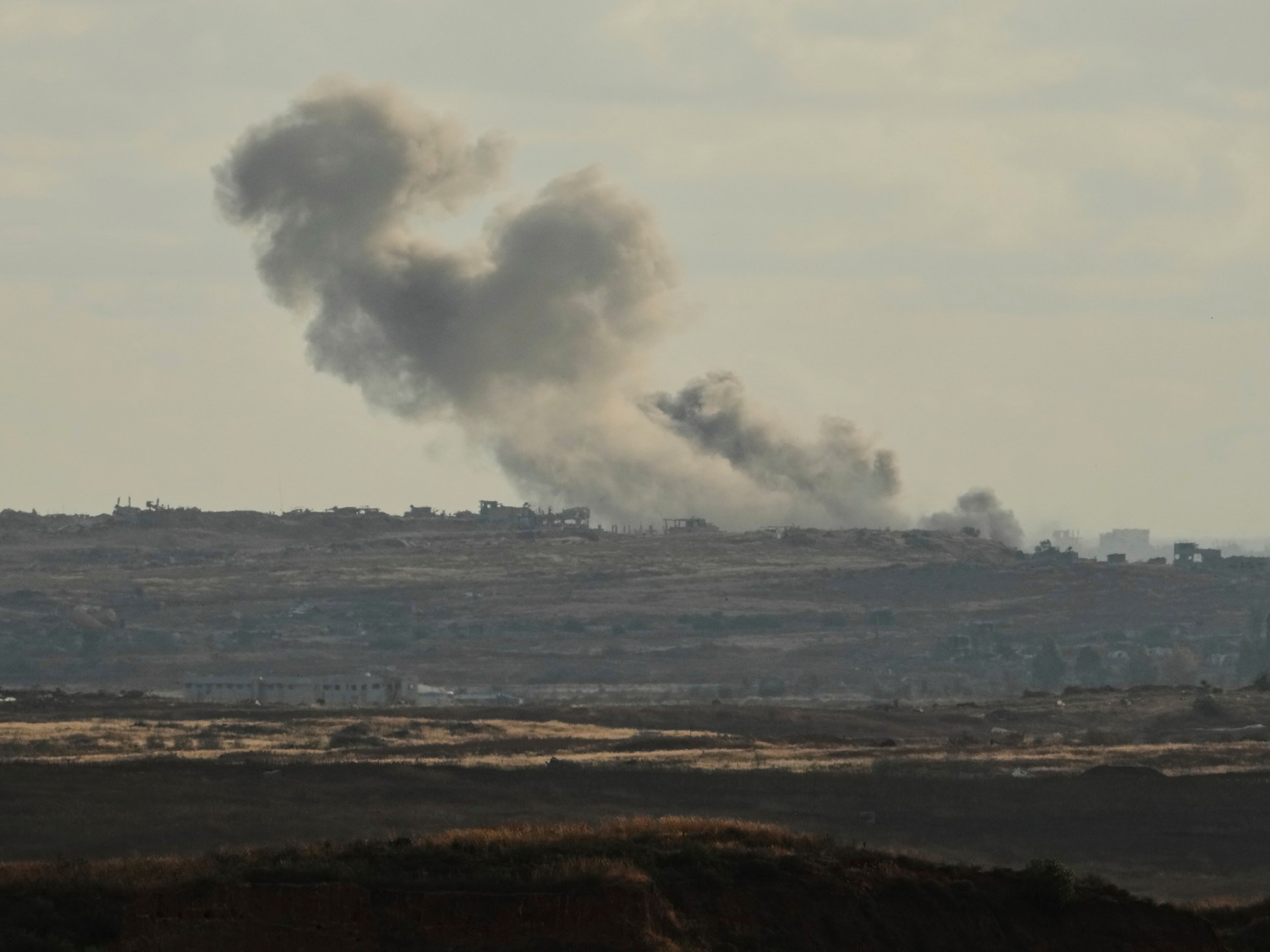
Move comes despite global outrage over humanitarian blockade and calls to reach lasting ceasefire.
The Israeli military will call up tens of thousands of reservists to expand the country’s assault on the besieged Gaza Strip, army chief Eyal Zamir says.
He made the announcement on Sunday after Israeli Prime Minister Benjamin Netanyahu promised to continue the war despite growing calls from inside Israel for a deal that would bring home Israeli captives held in Gaza and end the war, which has killed more than 52,000 Palestinians.
“This week, we are sending tens of thousands of draft orders to our reserve personnel to intensify and expand our action in Gaza. We are increasing the pressure to return our people [held captive in Gaza] and defeat Hamas,” Zamir said, adding that the Israeli military would “operate in additional areas and destroy all of [Hamas’s] infrastructure above and below ground”.
The military chief made the announcement during a visit to the Atlit naval base on Israel’s northern Mediterranean coast.
The announcement came before a Netanyahu-chaired security cabinet meeting to discuss an expansion of the war in Gaza, which began in October 2023 and has decimated the Palestinian enclave.
A growing movement within Israel has called for an end to the war, and an increasing number of reservists are ignoring call-ups.
Two government officials told the Reuters news agency that the cabinet would also discuss the possible resumption of aid to Gaza as humanitarian groups warn of increased starvation in the territory since Israel imposed a total blockade on March 2.
Israel continues to face widespread global outrage over the conduct of its war in Gaza, which has shattered the territory’s infrastructure as well as its healthcare system and displaced the vast majority of its 2.3 million residents at least once since the war began.
Far-right Israeli National Security Minister Itamar Ben-Gvir, in an interview with Israeli Army Radio, said he wanted to see a “powerful” expansion of the war but did not disclose details as to what new plans might entail.
“We need to increase the intensity and continue until we achieve total victory. We must win a total victory,” he said. He demanded that Israel bomb “the food and electricity supplies” in Gaza.
Leading humanitarian groups, including the Red Cross, have warned that the humanitarian response in Gaza is on the verge of “total collapse” and Palestinians face a “daily struggle to survive” amid bombardment and the crippling blockade.
United Nations agencies have said truck convoys carrying aid are building up at the border and have not been allowed into the enclave, where a famine is looming.
Israeli officials claim an expanded military offensive would pressure Hamas into releasing the 59 remaining captives, but critics argue it further endangers their lives. Israel ending the fragile ceasefire, which saw Palestinian prisoners exchanged for Israeli captives, on March 18 has not led to any more releases.
The reserve call-ups are going out as Netanyahu promised to respond to Yemen’s Houthis after the rebels fired a missile that struck a road at Israel’s Ben Gurion International Airport, wounding six people and prompting several major airlines to suspend flights.
Netanyahu said the response will take place “at a time and place of our choosing”.
The Houthis have said their fighters carried out the assault “in support of the oppressed Palestinian people” and to counter Israel’s “crime of genocide” in Gaza.
Middle East
Israeli soldiers, settlers harass Palestinian activist featured in BBC film | Israel-Palestine conflict News
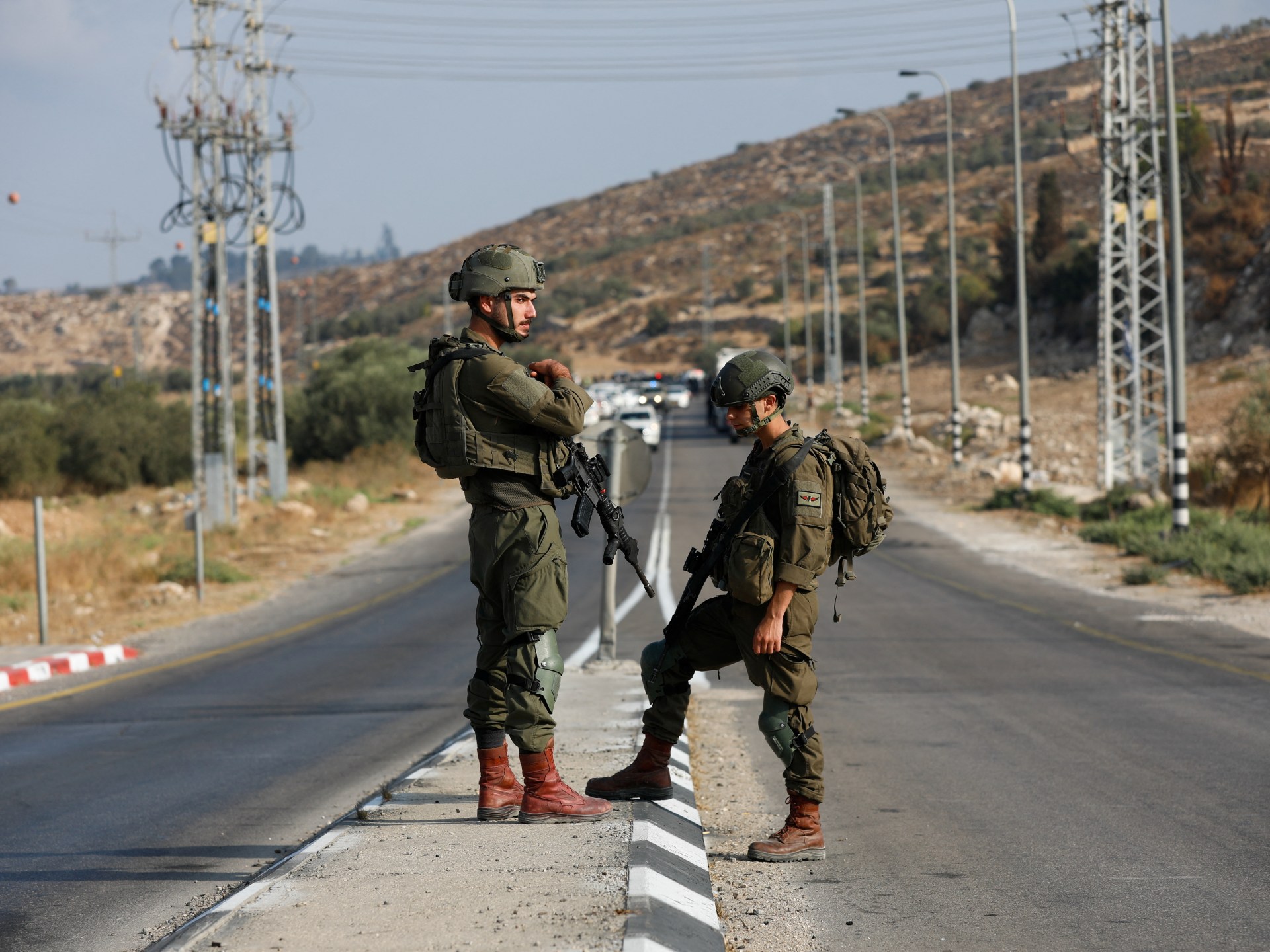
The activist says settlers feel emboldened by the unchecked support given to them by US President Donald Trump.
Israeli soldiers and settlers have harassed a Palestinian activist featured in a recent BBC documentary that has received praise for shedding light on the plight of Palestinians in the occupied West Bank.
As the world’s attention has been fixed on Israel’s 18-month war on Gaza, settler attacks against Palestinians in the West Bank and occupied East Jerusalem have spiked, forcing Palestinians to flee their homes. A lack of Israeli police action has further emboldened settlers, who cite the Torah in claiming rights over Palestinian lands.
Issa Amro, who was featured in The Settlers documentary made by British-American journalist and broadcaster Louis Theroux, released footage online showing how armed soldiers and settlers raided his house in Hebron in the occupied West Bank.
Amro said police also threatened him with arrest and told him not to file a complaint in what he said is another instance of apartheid imposed by Israel in the West Bank. Rights groups, including Human Rights Watch and Amnesty International, have accused Israel of practising apartheid in occupied territory.
Amro added on Sunday that the Israeli settlers who attacked him a day earlier told him United States President Donald Trump backed them. The settlers felt “emboldened because of the Trump administration’s blind support”, the activist said.
Theroux said he and his team have remained in regular contact with Amro.
. @Issaamro who featured in The Settlers has posted videos of his latest harassment by settlers and soldiers. Our team has been in regular contact with him since the documentary and over the last 24 hours. We are continuing to monitor the situation. https://t.co/asEWKkVX5h
— Louis Theroux (@louistheroux) May 4, 2025
The BBC documentary, a follow-up to Theroux’s 2012 film The Ultra Zionists, reflects on how the situation has evolved in occupied Palestinian territory.
While conducting interviews with Palestinian and Israeli figures, the documentary explored how the settler population has grown significantly and how new military outposts and Israeli infrastructure have expanded across Palestinian territories, often with direct state support.
It delves into the religious and ideological motivations behind the Israeli expansion, which has led to mass displacement of Palestinians and violent clashes, and it questions the legality and morality of the occupation as courts rule that it undermines international laws and norms.
“You bring Jewish families [to the occupied West Bank], you live Jewish life, and this will bring light instead of darkness. And this is how the state of Israel was established, and this is what we want to do in Gaza,” Daniella Weiss, a key member of the Israeli settler movement for decades, says in the documentary.
Weiss, who has enjoyed support from a number of Israeli rabbis as well, said Israeli Prime Minister Benjamin Netanyahu is “happy” about the settler expansion. Netanyahu has opposed the Palestinian sovereignty over Gaza and occupied West Bank and East Jerusalem.
Settlers are Israeli citizens who live on private Palestinian land in the West Bank and East Jerusalem. They now number more than 700,000. All Israeli settlements are considered illegal under international law.
Settlements and their expansions are seen as the biggest hurdle in the realisation of a sovereign and independent Palestinian state living side by side with Israel.
The United Nations General Assembly last year called on Israel to end its occupation of Palestinian territory. This came months after the International Court of Justice (ICJ) ruled that the Israeli presence in Palestinian territory is ‘”unlawful”.
Theroux himself was harassed as well when making part of the documentary in Hebron when Israeli soldiers approached him and tried to make him leave the area.
The harassment of Amro comes shortly after Hamdan Ballal, the Palestinian co-director of the Oscar-winning documentary No Other Land, was attacked by Israeli settlers in his home in the West Bank village of Susya.
Armed and masked settlers vandalised his home and vehicle in late March and injured Ballal. While receiving treatment in an ambulance, Israeli soldiers blindfolded and arrested the filmmaker, who was later released without charge.
Like the harassment of Amro on Saturday, that attack was also seen as retaliation for the documentary’s international acclaim and its efforts to show the struggles of Palestinians in the West Bank.
The incidents have also further highlighted the dangers faced by journalists and filmmakers under Israeli occupation at a time when Israel has killed more than 200 media workers in the Gaza Strip.
-
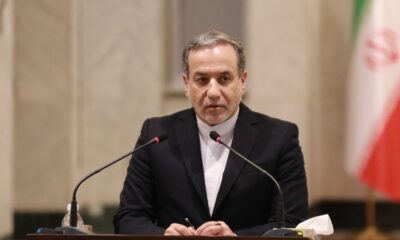
 Middle East1 day ago
Middle East1 day agoIran reasserts uranium enrichment rights as further US talks delayed | Nuclear Energy News
-
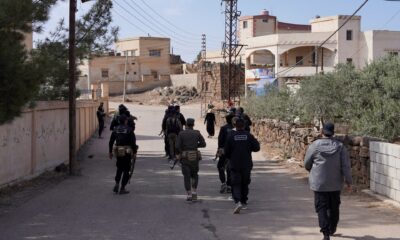
 Middle East1 day ago
Middle East1 day agoIsraeli attacks kill two more as Syria government reaches deal with Druze | News
-

 Middle East1 day ago
Middle East1 day agoFear, pain, and a little hope: Volunteer doctors in Gaza | Israel-Palestine conflict News
-

 Europe1 day ago
Europe1 day agoReform UK wins fifth seat in parliament by just six votes as populist party’s support strengthens
-

 Sports2 days ago
Sports2 days agoAndrea Kimi Antonelli: Teenage prodigy becomes the youngest ever driver to claim an F1 pole
-

 Europe1 day ago
Europe1 day agoDetained Harvard researcher Kseniia Petrova says she didn’t lie to government
-

 Europe19 hours ago
Europe19 hours agoTrump draws criticism with AI image of himself as the pope ahead of the papal conclave
-
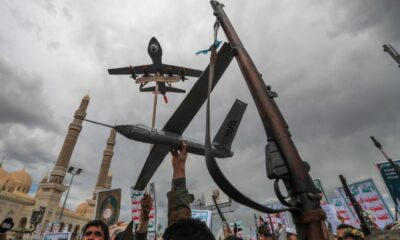
 Conflict Zones1 day ago
Conflict Zones1 day agoHouthis maintain pressure on Israel as US launches more strikes on Yemen | Politics News




